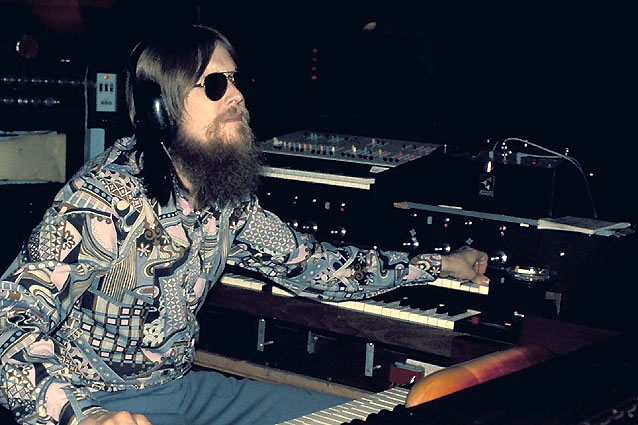|
In
late winter of 1973, I began feeling that something was
changing in the group. It's hard to describe. In 1968, when
the group first formed, it wasn't as much of a collaborative
effort as it became from mid 1969 through 1973. Originally,
Three Dog Night was considered to be strictly Danny, Chuck
and Cory (In
fact, it was always so, although through tenacity,
musicianship, camaraderie and public response, this
perception changed over the years. There were existing
internal contracts between us, but that's private).
To
describe my feelings about "something was changing," I must
allude to a
number of factors.
1)
Joe
Schermie. First,
and not to have been taken lightly, was the omission of Joe
from the mix. I loved Jack Ryland dearly and still do. Jack
was a marvelous player, as evidenced by his great playing on
the intro of "Shambala," whereas Joe's style pushed and
shoved the band like a small train,
(
a "Sneed-let," if you will)
bumping you "in time" with the groove.
2)
Less
collaboration. As
time went on, things began to revert to where the musicians
tended to just learn the demos that the singers wanted to
do. There began to be minimal brainstorming opportunities in
advance of the recording process.
3)
Drugs.
Not to be overlooked, drugs were permeating almost every
corner of our group and music business associates. I should
pause to say, "almost everybody." Cory and Skip were free of
this self-imposed lifestyle.
4)
Doubt
and mistrust
began creeping in due, in part, to the drug abuse. The
business ranks had been grabbing to hold the control they
perceived they had over us, and even gunplay came in at one
point. This was not within the group itself. It's been said
that "money is the root of all evil," and there's a lot to
be said for that. In the studio, we were finding it more and
more difficult to muster the magic we had in the previous
years. Partly, from being trashed, partying and so on, but
also from 5)
ROAD
BURNOUT.
This is real. Ask any veteran entertainer. Although, the
grueling schedule was affirmation of our talent and efforts,
it took a major toll on our health, both physical and
mental, and also in our personal lives. Jumping time zones
every day, performing late at night and leaving early the
next morning, then back to California for marathon recording
sessions. A LOOP. A major LOOP. It's what we wanted, but it
had a price tag attached that we didn't expect. We all
became cranky, and that's putting it mildly. This kind of
negative interaction brings a need for action, although it
may be dipped in "pointing fingers." To repeat, these are my
perceptions, not to be confused with certifiable truths.
Others have different views on these things.
The
decision was made to change recording studios and producers.
The new studio was the Record Plant in Sausalito,
California. It felt totally bizarre, not being in American
Recording with Podolor and Cooper, but I was determined to
make the best of it. Plus, a new member, Skip Konte was
added as a second keyboardist to the band.
|

